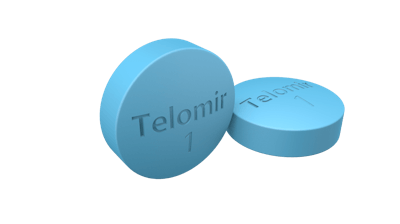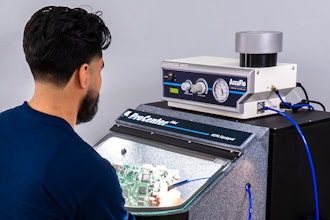
Telomir Pharmaceuticals, Inc., an age-reversal science company, has announced groundbreaking preclinical results confirming the efficacy of its licensed molecule Telomir-1 in reversing several key parameters of Type 2 diabetes mellitus.
The study demonstrated significant reductions in fasting plasma glucose levels to basal levels, improvements in oral glucose homeostasis, and the reversal of insulin resistance to near pre-diabetic levels. These findings were supported by significantly improved Homeostatic Model Assessment of Insulin Resistance (HOMA-IR) values, a standard measure used to assess insulin sensitivity and resistance.
These effects were also accompanied by increased survival rates in treated subjects. These findings highlight Telomir-1's ability to potentially address the underlying mechanisms of Type 2 diabetes, setting it apart from currently approved diabetes therapies.
According to information published by the International Diabetes Foundation, Type 2 diabetes (both undiagnosed and diagnosed) impacts more than 800 million adults globally, with an annual healthcare cost exceeding $966 billion as of 2021. Current treatments focus on managing blood glucose levels and alleviating symptoms rather than reversing the root causes of the disease. Moreover, these drugs often come with significant shortcomings, including limited impact on insulin resistance, gastrointestinal issues, risk of hypoglycemia, cardiovascular risks, and weight gain.
The new preclinical study results, conducted in a zebrafish diabetes model, suggest that Telomir-1 could offer a novel, transformative approach by targeting the underlying mechanisms of insulin resistance. By normalizing iron metabolism, Telomir-1 directly addresses oxidative stress and beta-cell damage. A key metric of success in this study was the significant reduction in HOMA-IR values. Lower HOMA-IR values indicate improved insulin sensitivity and better glucose regulation, which are critical factors in combating Type 2 diabetes. The reversal of insulin resistance to near pre-diabetes levels achieved by Telomir-1 underscores its groundbreaking potential as a transformative treatment.
This announcement aligns with the new Trump administration's healthcare strategy under the proposed leadership of Robert F. Kennedy Jr. as head of the Department of Health and Human Services (HHS). Telomir believes that the new administration's focus on addressing root causes of chronic diseases and supporting transformative therapies complements Telomir's vision of treating disease causes rather than just symptoms.
In collaboration with the India-based research organization Pentagrit, Telomir evaluated two forms of Telomir-1, administered orally at three different doses, in zebrafish models of Type 2 diabetes mellitus induced by a high-calorie diet. The study assessed key metabolic indicators, including fasting glucose levels, Oral Glucose Tolerance Test (OGTT) results, insulin concentrations, and HOMA-IR.
Key findings include:
- Reversal of Hyperglycemia and Insulin Resistance: Telomir-1 demonstrated dose-dependent efficacy in normalizing blood glucose and reducing insulin levels, restoring glucose homeostasis.
- Significantly Reduced HOMA-IR Values: Telomir-1 showed a substantial improvement in insulin sensitivity to near pre-diabetes values, underscoring its potential to mitigate insulin resistance.
- Enhanced Glucose Clearance: Significant improvements in OGTT results highlighted Telomir-1's impact on glucose metabolism.
- Increased Survival Rates: Treated models exhibited improved survival compared to controls, showcasing Telomir-1's comprehensive therapeutic potential.
A Novel Mechanism of Action
Telomir-1's novel mechanism of action focuses on addressing the systemic role of iron metabolism in a large variety of chronic diseases, including Type 2 diabetes. Excess iron levels contribute to oxidative stress, beta-cell damage, and insulin resistance across key tissues. Telomir-1 is designed to normalize iron homeostasis, reducing oxidative stress and improving insulin sensitivity, setting it apart from existing drugs that primarily treat symptoms without addressing these underlying causes.
Expanding Research and Future Directions
Building on these remarkable results, Telomir is advancing additional research, including:
- Progeria Studies: Evaluating Telomir-1's effects on human progeria cell lines and progeria nematode models to investigate its impact on accelerated aging and telomere function and stability.
- Diabetic Mouse Models: Further validating Telomir-1's efficacy in mammalian model of Type 2 diabetes.
- Alzheimer's Disease: Initiating studies to assess Telomir-1's potential in mitigating cognitive decline and neurodegeneration.
- Osteoarthritis and Inflammatory Diseases: Evaluating Telomir-1's role in managing joint health and other age-related inflammatory conditions.
- Cancer Models: Exploring Telomir-1's application in combating age-related oncological conditions.






















